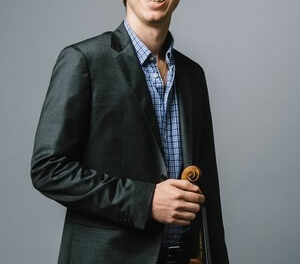Audience members at the latest ECU S. Rudolph Alexander Performing Arts Series program would be hard-pressed to recall the last time they heard anything quite like the performance by Nordic Voices, an a cappella sextet from Norway. Musical skills were in abundance throughout the program, but the choice of music might have caused some serious head-scratching. Vocal overtones that resembled the drone of bagpipes, whispered whistles and rhythmic heavy breathing were mixed with stunningly beautiful readings of works by Purcell and Tomkins, as well as 20th century Norwegian composer Bjarne Slogedal. Lyrics from Edward Lear nonsense limericks set to music by Italian Goffredo Petrassi contrasted with a lovely version of Ravel’s “Trois Beaux Oiseaux” (Three Lovely Birds).
Initially promoted as a program devoted to “Ciel,” or the heavens or sky, the sextet actually sang music based on the theme of “Music Divine,” encompassing both secular and sacred works. The secular music, including contemporary-cum-avant garde, contained more than a little humor, but in the end, one simply wondered, not infrequently, “Why?” Lasse Thoresen’s “Sun Song,” for example, contained some sections that resembled insects buzzing and others that could have been taken from Native American or South American music. Some of the vocal harmonies were closer than just about anything heard in Arvo Pärt’s choral compositions. In the second half of the program, Thoresen’s “Heavenly Father” included whispered whistling as well as regular whistling, with sections sounding more Eastern European or Middle Eastern than Scandinavian.
The same head-scratching accompanied a piece by contemporary composer Maja Ratkje with the unwieldy title, “A Dismantled Ode to the Moral Value of Art.” The piece included a recognizable quotation from Beethoven’s “Ode to Joy,” sung in a tiny squeaky voice by soprano Ingrid Hanken, and repeated snatches of a lyric by Neil Young. You get the idea.
And yet some portions of the program were gorgeous. The program opened with Thomas Tomkins’ “Music Divine,” containing a series of beautiful moving lines, with some echoed sections, that represents a high point of late 16th century to 17th century choral composition. A second Tomkins piece, “Turn Unto the Lord,” was equally stunning, as the six voices blended perfectly. Henry Purcell’s “O God, Thou Has Cast Us Out” was terrific, despite the fact that at times it seemed as if the six singers might have been reading off different scores — a function of the way Purcell composed the parts with their complex entrances, not the way the singers were singing.
Slogedal’s “Oh, Lord, Have Mercy on Me” and “Heaven’s Rest Has Come for God’s People,” based on Norwegian folk melodies, represented more traditional choral scoring, and the sextet delivered wonderful performances of both. And not all 20th century composition is inaccessible; Nordic Voices also included a brief “Peace I Leave With You” by Knut Nystedt, which has a modern but engaging melody line that includes unusual harmonies. Ravel’s “Trois Beaux Oiseaux” featured lovely singing of the text by soprano Tone Elisabeth Braaten over wordless accompaniment by the other singers.
The six Nordic Voices are quite accomplished singers. Mezzo-soprano Astrid Sandvand Dahlen has a lovely rich voice with a wide range, and tenor Per Kristian Amundrod, a founding member, had too few opportunities to display his warm tone. Sopranos Braaten and Hanken reached the highest notes often and effortlessly. Baritone Frank Havroy and bass Trond Olav Reinholdtsen filled out the middle and lower registers quite nicely without dominating.
The program was perhaps an educational experience, but the mix of ultra-contemporary choral music with more traditional music was not always easy to warm up to, especially after being exposed to such choral groups as Tenebrae Choir, Seraphic Fire, Tallis Scholars or Chanticleer in earlier concerts.











